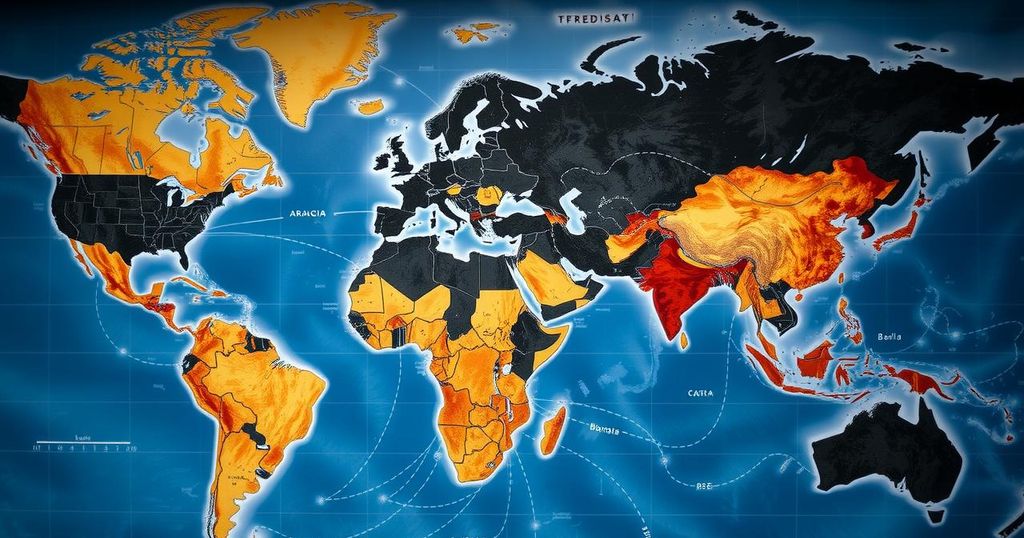Challenges Faced by India in Leading the Global South: Insights from Army Chief Gen Upendra Dwivedi
General Upendra Dwivedi highlighted that China’s rise complicates India’s ambition to lead the Global South during a lecture in Delhi. He noted challenges related to international decision-making and economic competition, while emphasizing the importance of technology in national security. General Dwivedi also advocated for India’s active participation in global forums and reforms for equitable representation in international governance.
General Upendra Dwivedi, Chief of the Army Staff, recently articulated the challenges confronting India in its aspiration to assert leadership in the Global South. He highlighted that China’s ascendance as a dominant economic and strategic force complicates India’s position, creating additional competition that hampers its efforts to be a natural leader in this region.
During his address at the fourth General Bipin Rawat Memorial Lecture in Delhi, General Dwivedi underlined various factors contributing to India’s ongoing struggle for a more influential standing on the global stage. He emphasized India’s pivotal role due to its geography, population, democratic framework, and soft power, affirming that despite these assets, India remains notably marginalized in international decision-making.
General Dwivedi remarked on the impact of geopolitical dynamics such as the BRICS coalition’s setbacks, which have hindered India’s capacity to initiate substantial change in international monetary systems. He suggested a vigilant approach to organizations like the Shanghai Cooperation Organisation (SCO) and noted the necessity of adapting to the contemporary security landscape shaped by technological advancements.
He characterized technological capabilities as the new measure of deterrence and emphasized the importance of data in both trade and security. General Dwivedi contended that comprehensive military capability, coupled with a robust defense industrial base and empowered civilian leaders, is essential for national security.
In discussing India’s international strategy, he advocated for collaboration with anti-colonial allies to promote a multipolar world order and prevent conflicts through collective action. He argued for India’s active engagement in global forums such as SCO, BRICS, and BIMSTEC to cement its leadership role.
Additionally, he called for reforms in the United Nations Security Council to enhance representation for the Global South and suggested that India should play a proactive role in global conflict resolution. He emphasized leveraging the Indian diaspora for humanitarian initiatives and pursuing socioeconomic development for less privileged nations.
General Dwivedi also expressed the Indian Army’s commitment to peacekeeping operations and the importance of a strategic stance on nuclear weapons, viewing them primarily as deterrents. He reaffirmed that the Army remains integrated with national security objectives, particularly in combating terrorism and other internal threats.
General Upendra Dwivedi’s insights underscore the challenges India faces in establishing itself as a leader of the Global South, particularly in light of China’s growing influence. His emphasis on technological advancement, collaboration with international partners, and proactive global engagement highlights essential strategies for elevating India’s international standing. Ultimately, strengthening India’s voice and leadership in the Global South will require reformative actions and transparent collaboration with allies.
Original Source: m.economictimes.com




Post Comment